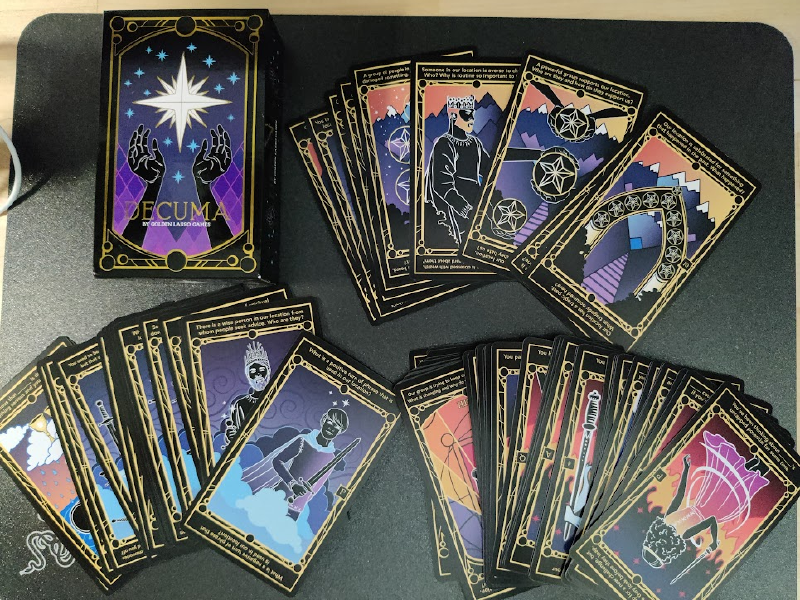I first became enamored of using cards in roleplaying games with Torg’s Drama Deck. Enough so that I tried to shoehorn them into other games such as Mekton or Cyberpunk 2020. Over time I became fonder of using them as oracles or for inspiration versus as randomizers during game play. There’s a plethora of different card decks available now — and of course, I have a number of them.
Session Zero Cards
There has been a proliferation of card decks tailored to collaborative character generation. They’re great for drawing inspiration from while prepping and during play. Each deck has a different tone and focus for their prompts. This lets me choose the appropriate deck for the game I want to run.
Backstory Cards
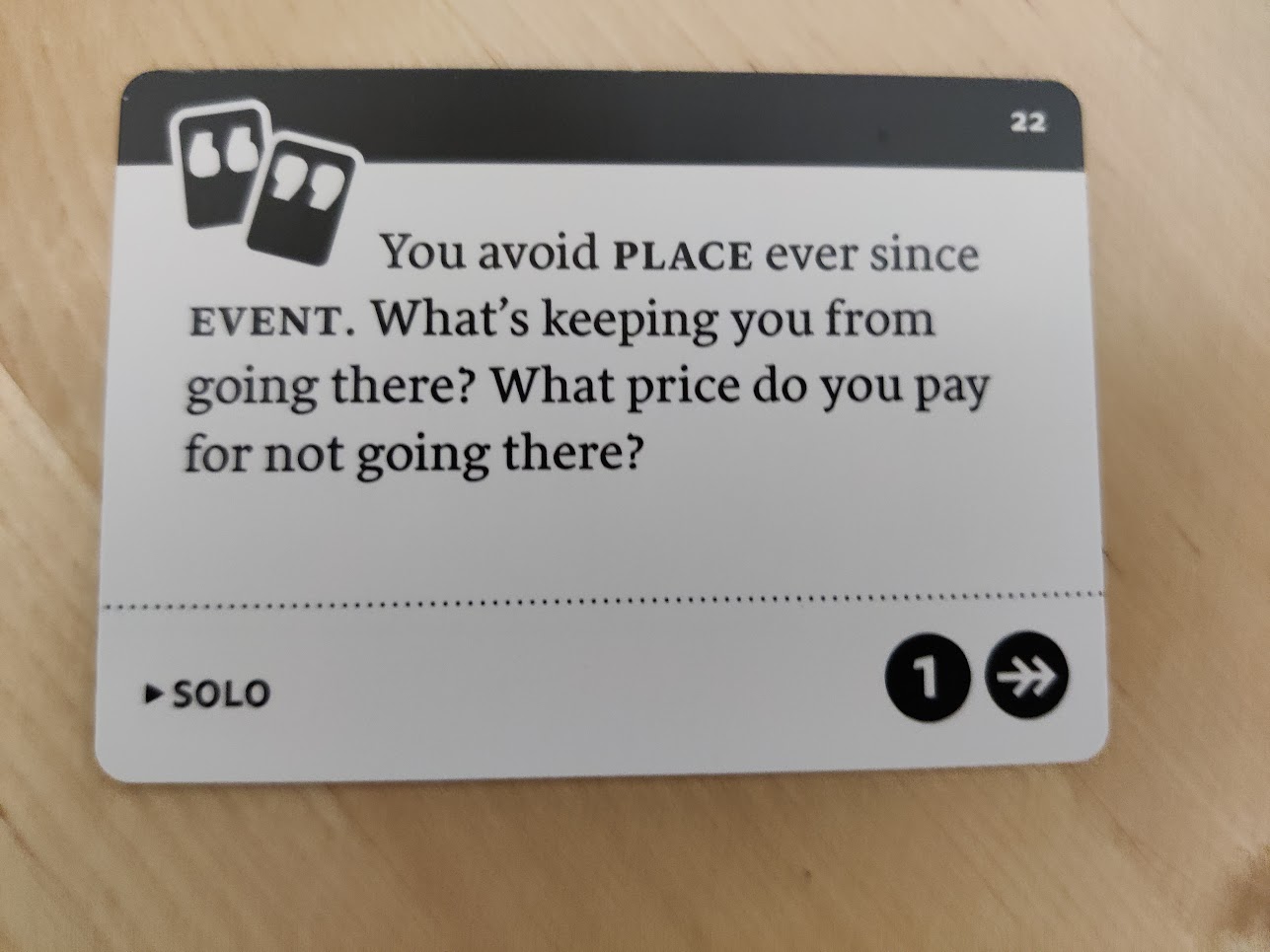
Backstory Cards from Galileo Games are a flexible tool for use with session zero-style character creation. The base deck is 54 cards, but those include cards that include the instructions (I believe it comes out to 48 cards with prompts). There are several expansion decks for it.
The cards are a series of prompts that the players draw and then answer. The GM sets up a campaign matrix beforehand of events, NPCs, and locations that can be referred to in the card prompts. The prompts are written so that they are setting agnostic — but the expansions do have cards that are horror or science-fiction flavored. They are worded to introduce twists and complications into the character’s history and relationships with other characters, and provide tags and other values as to what type of card they are and who they apply to.
Backstory Cards don’t have set phases or how many rounds players should draw, making them ideal for games where I may want them to delve deeper into the player characters’ background and relationships.
Decuma
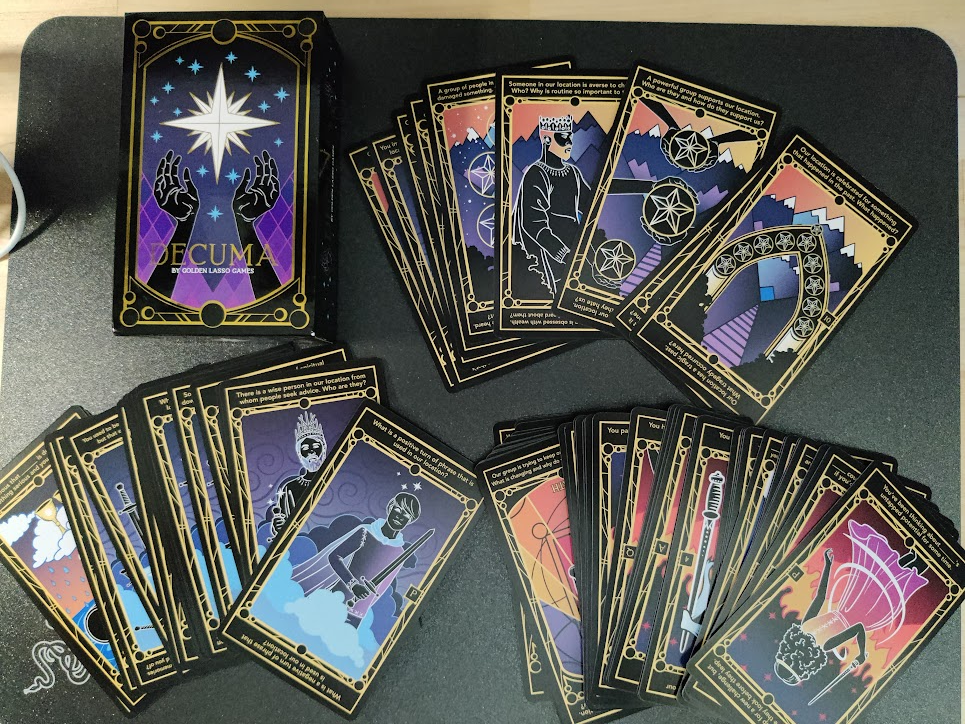

Decuma is a standard-sized tarot deck from Golden Lasso Games that functions similarly to Backstory Cards. However, the flavor of the cards is different. Unlike Backstory Cards, Decuma cards are drawn and interpreted in phases that help establish the player characters’ relationship to each other and the game’s setting (in this context, “setting” means where the game takes place versus the entire world). While the Decuma deck itself has gorgeous art, the booklet with the cards lists the card prompts with their corresponding tarot card, allowing it to be used with a regular tarot deck.
Session Zero System
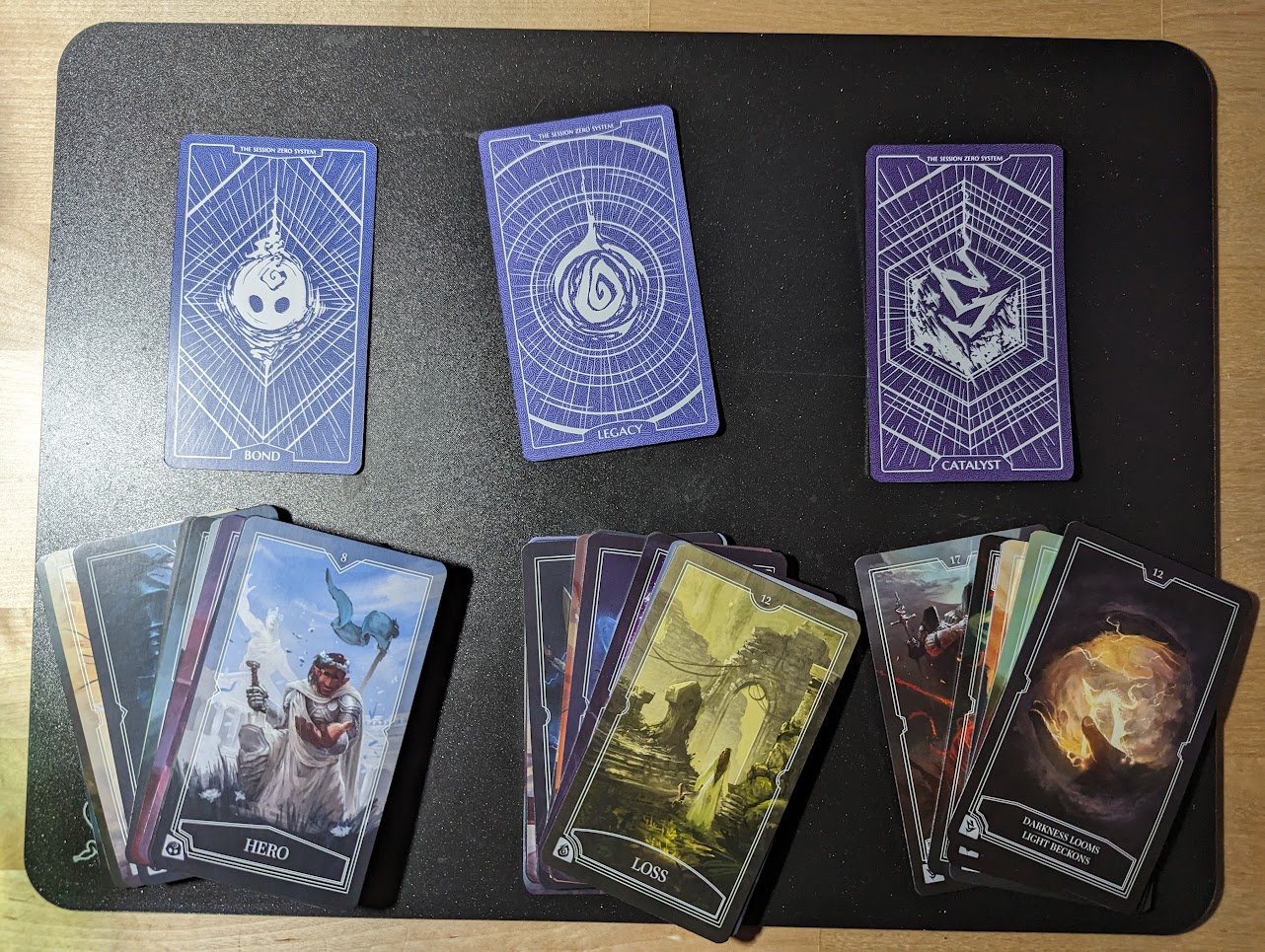
The Session Zero System from Mythic Grove Productions consists of a booklet and a deck of cards. The booklet outlines methods of setting up a proper session zero, including questions to ask and how to set up safety tools. It follows with the system for using the cards, called the Story Path. It ends with some excellent advice on continuing character motivations and goals after the game starts.
The cards, of course, were my motivator for getting the system. The art on the 60 cards is beautiful, but they are more fantasy-oriented than Decuma’s. The prompts are longer and contain more possible questions to answer, so they aren’t included on the cards.
Other Decks
I have several other decks intended for specific purposes, from helping to fill out character traits to introducing new elements to your game.
Short Order Heroes
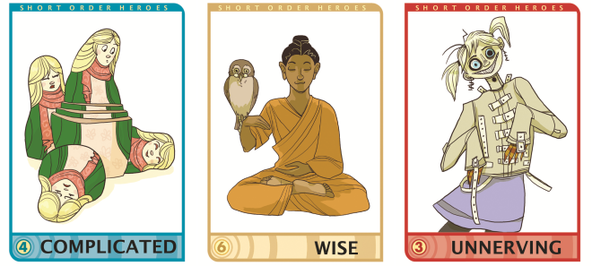
Short Order Heroes are a set of cards from Calico Games that are just art and a single trait or descriptor. You can draw as few or as many as you need. They map really well to aspects, distinctions, or similar characteristics. There are 108 cards in the base deck. Expansion decks are horror, science fiction, fantasy-flavored cards, and cards for relationships, events, and motives. I usually have Short Order Heroes on hand when I run a game to flesh out NPCs I come up with on the fly.
The Weird Deck
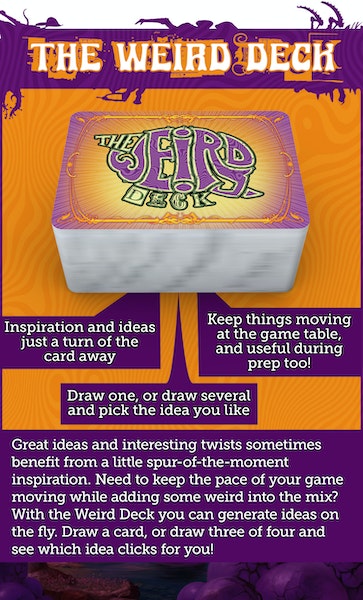
The Weird is a book from Monte Cook Games that is thousands of entries in tables of things that are just…weird. A 100-card deck was produced for it, which, unsurprisingly, I sprung for. Unlike the decks that Monte Cook Games have made for the Cypher System, Numenara, or The Strange, the Weird Deck is system agnostic. The book is available, but the cards still need to be delivered.
Turn Tracker Cards
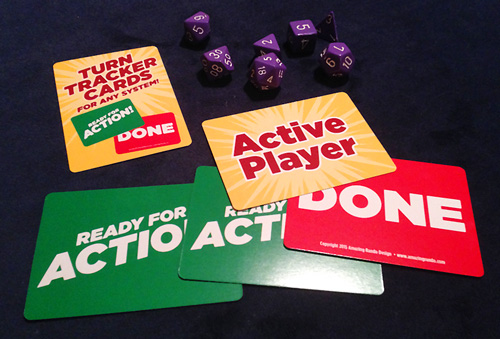
The Turn Tracker Card deck from Amazing Rando Designs (who manages the Fate SRD, Blades in the Dark’s site, and I don’t know what else) is 13 cards that help track whose turn it is. It has an active player card that is passed around and six cards for players to indicate if they are ready for their turn or done. The remainder of the cards are for GM characters with descriptions like Big Bad, Minions, Flunkies, etc. The deck is most useful for theater of the mind games that use “Balsera initiative” or don’t have initiative orders — like Fate, Cortex Prime, or Blades in the Dark.
